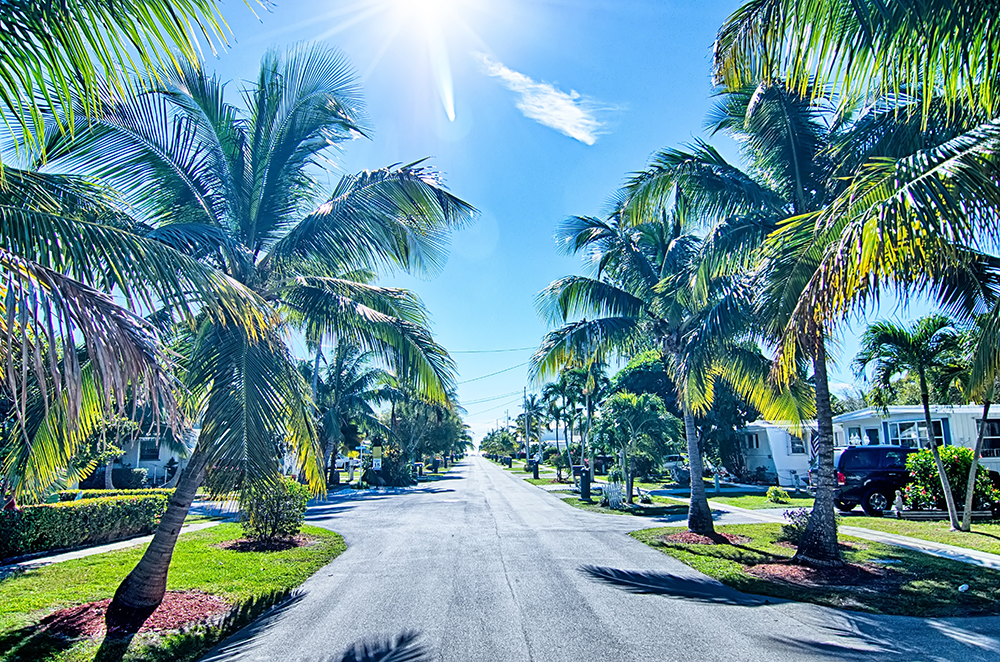Florida is known as a place with sunny, warm temperatures year-round, where many people come when they want to get away from the cold, especially in the harsh winter months. So, you may be thinking to yourself, “I came to Florida to get away from the winter. Why would I need to winterize my home?”
Despite popular assumptions, there are things you can and should be doing in the wintertime to help keep your home running efficiently and effectively.
Reviewing our guide on how to winterize a house in Florida can help you better take care of your investment. Our team at Galaxy Title and Escrow are happy to help not only close on a home but also provide resources to help take care of your home.
Why Do I Need to Winterize My Home in Florida?
 While Florida’s winters are much more temperate than most of the rest of the country, especially the northern states, even in the Sunshine State, temperatures can drop. In conjunction with the humidity, it can make the air temperature feel even colder. Since Florida isn’t accustomed to colder weather, when the temperature does drop it can increase the risk of frozen pipes, drafts, and damage to outdoor spaces.
While Florida’s winters are much more temperate than most of the rest of the country, especially the northern states, even in the Sunshine State, temperatures can drop. In conjunction with the humidity, it can make the air temperature feel even colder. Since Florida isn’t accustomed to colder weather, when the temperature does drop it can increase the risk of frozen pipes, drafts, and damage to outdoor spaces.
By winterizing your home, you ensure that your living spaces remain comfortable, your outdoor areas are protected, and your home remains energy-efficient.
What Are the Key Areas I Should Focus on When Winterizing My Home?
When it comes to winterizing a house, there are a few key areas you will want to focus on:
- Windows and Doors
- Insulation
- HVAC
- Gaps and Cracks
In the wintertime especially, windows and doors are prime culprits for heat loss and drafts. To prevent this from happening, you will want to inspect all windows and doors for gaps and seal them with weatherstripping or caulk.
While many Florida homes already have them, if yours doesn’t, consider upgrading to hurricane-proof windows. Not only will these provide added protection during hurricane season, but they also provide enhanced insulation. Upgrading to location-appropriate windows adds more security for your home or any properties you manage. You can learn more about how to protect your home and properties in our property management guide.
Speaking of insulation, proper insulation is key to maintaining a comfortable temperature indoors year-round, particularly in the winter when the temperatures are constantly changing.
Make sure to check the insulation in your attic, walls, and floors and, if needed, add some more in vulnerable areas to prevent heat loss.
Before we get into the heart of the winter months, you may want to have your HVAC system checked out to make sure that everything is running properly when it comes to your heating, ventilation, and AC.
Also, don’t forget to change your air filter regularly to ensure everything is running smoothly for optimal performance!
Gaps and cracks can be the easiest way for air to get in and out. It also may be the toughest thing to detect. It’s always good to check your home for any gaps and cracks so that you can fill them in and prevent air from coming in or getting out.
Common areas for gaps include around windows and doors, electrical outlets, and plumbing penetrations. Should you come across any gaps or cracks, you can seal them with caulk or weatherstripping.
How Can I Protect My Garden and Outdoor Spaces During Winter?
Even the mild winters of Florida can wreak havoc on your garden if you aren’t careful. When the temperatures begin to drop you will want to make sure you protect any sensitive plants by covering them with blankets or burlap at night. Adding extra mulch around the base of your trees can also help regulate temperature.
Another thing you will want to do, if you don’t already, is invest in some coverings for your outdoor furniture. Ideally, you will want to have these year-round for when you are not using the furniture, but it can be especially helpful during those winter months.
Finally, make sure to adjust your irrigation schedule to account for the cooler temperatures. Watering in the morning allows the soil to absorb moisture before the colder evening temperatures arrive.
Are There Energy-Efficient Upgrades I Can Consider For Winter?
 If you are thinking about energy-efficient upgrades this winter, you may want to consider the following:
If you are thinking about energy-efficient upgrades this winter, you may want to consider the following:
- Smart Thermostats
- LED Lighting
- Energy-Efficient Appliances
Smart thermostats can help optimize your energy efficiency by allowing you to program your thermostat settings and even change them on the go. LED lighting not only reduces energy consumption but runs less hot than conventional lightbulbs, keeping your house cooler. Energy-efficient appliances are designed to use less energy, providing cost savings and reducing your environmental footprint. If you make your home eco-friendly you will already be utilizing many of these energy-efficient features.
What Steps Should I Take to Prevent Plumbing Issues During Winter?
Nobody ever wants to deal with plumbing issues, especially in the wintertime. If you are looking to be proactive this winter to prevent any major plumbing issues, consider doing the following:
- Insulate your pipes – Use pipe insulation sleeves or wraps to protect pipes in particularly vulnerable areas.
- Drain all outdoor faucets – Disconnect and drain outdoor hoses and faucets to prevent water from freezing in the pipes.
- Keep your indoor temperatures consistent – Setting your thermostat to a moderate temperature helps prevent frozen pipes and ensures the overall well-being of your plumbing system.
If you do run into an emergency, don’t panic. Make sure you know where the main water shut-off valve is. If something goes wrong shut that valve off before calling a plumber or expert to help. Doing this can minimize the damage.
Learn More About How To Winterize a House at Galaxy Title
Winterizing your home in Florida is a proactive approach to ensuring comfort, energy efficiency, and safety during the cooler months. Whether you are looking to winterize your current home or buy a new one this holiday season, at Galaxy Title we are here to help. Contact us today to learn more about the services we offer.



